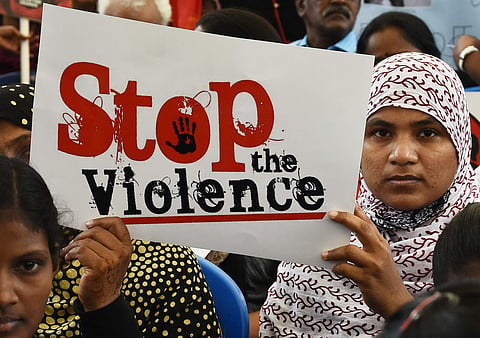

NEW DELHI: The government will now maintain data on lynching. The National Crime Records Bureau (NCRB) report of 2017, expected to be released by the Ministry of Home Affairs in the coming days, will document all lynching incidents in the past year.
So far, the government has never maintained data on lynching although there have been demands from several quarters on account of killings related to cow vigilantism, witchcraft and child lifting. “The NCRB’s ‘Crime in India’ report has been enhanced to capture information on lynching under the method of murder from 2017 onwards,” a government functionary said.
The NCRB, which tabulates and analyses crime data, is also trying to record the causes of lynching, sources said.The rise in lynching incidents had prompted the NCRB to propose creating a database on such incidents. But the proposal, made in July 2017, remained pending before the MHA.
Experts said the documentation of lynching as a separate crime rather than as murder would lead to better prosecution.“The compartmentalisation of lynching will lead to better identification, investigation and accountability,” former Uttar Pradesh DGP Vikram Singh said. At the moment, lynching cases invite charges under Section 302 of the IPC, or murder.
“The time has come to list lynching as a separate crime. Now, governments will have to ensure such cases don’t result in easy acquittals. And they will have to ensure speedy justice,” Singh said.
Well known commentator and activist John Dayal termed it a big step and said the data would help the government take effective preventive measures.“The fact that the government of India is at last acknowledging lynching is an admission that the incidents are linked to religious nationalism,” said Dayal, author of Reconciliation: Karwan e Mohabaat, a book on cow lynching.
ALSO READ: Five held for lynching Karur teen
Advocate Alok Prasanna Kumar, who has been pressing for creating a database on lynching, welcomed the move saying it would help identify the “vulnerable areas and ascertain the causes behind lynching.”
“Lynching used to happen in America when black Americans were terrorized by whites for racial control. With the help of data, their researchers and enforcement agencies managed to identify the vulnerable areas,” Kumar said.
But the lawyer said collecting reliable data on lynching could be a challenge as there was no legal definition under the IPC.“Lynching is a very specific kind of offence. It is a means of maintaining social control by a dominant group so authorities collecting data need to get the definition of lynching right otherwise many kinds of mob violence may be classified as lynching,” he said.
Jaan Mohammad, whose brother Mohammad Akhlaq was lynched by a mob in Dadri, Uttar Pradesh, in 2015 for allegedly storing and consuming beef, called the move a step in the right direction.
“Maintaining data on such crimes is a positive step,” he said but hoped that authorities would ensure speedy justice to victims of lynching.
Step in the right direction: victim’s kin
Jaan Mohammad, whose brother Mohammad Akhlaq was lynched by a mob in Dadri for allegedly storing and eating beef, said maintaining data on lynching is a positive step